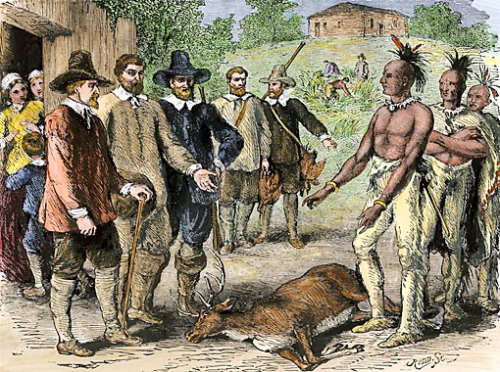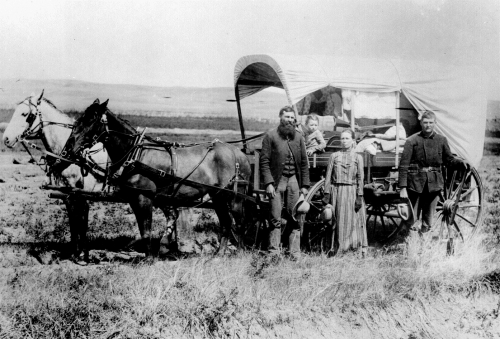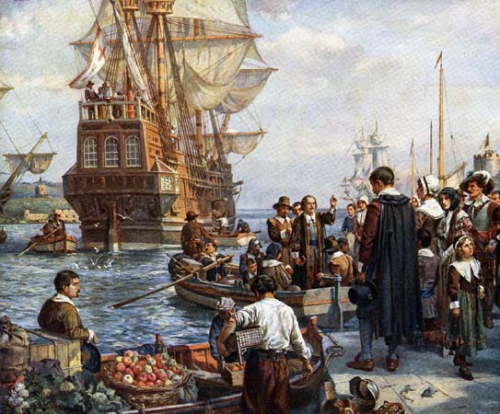It is often said that Diversity is Our Greatest Strength™. It is also often said that White people have no culture. So it follows—by the logic of the left—that White people are not diverse, since diversity is largely used as a synonym for multiculturalism. We know of course that when people speak of diversity, however, it just means less White people. While it is debatable for the critical thinker to what degree diversity is useful and what kinds of diversity are in fact beneficial, there is no doubt on the alt-right that ethnic or racial pluralism is a source of tension and conflict in society and undermines cohesion and trust. We also reject the idea that the English-speaking European people of North America have no culture as rank bigotry. I cannot think of a single way one could reasonably define culture while excluding two hundred million people and the majority population of one of the world’s largest and most influential countries. To do so requires a radical re-interpretation of culture that is likely riddled with contradictions.
Even during the height of European imperialism—when it was broadly acknowledged that some societies were inferior to others—there was substantial interest in how otherized and primitive societies functioned and studies were undertaken to learn how they worked and how their people lived. In other words, some of the most prejudiced people to have ever lived could acknowledge that the people they deemed inferior had culture and found it valuable to study. It is really only our contemporary leftists aping as aristocrats who deem everything outside their ideological borders as nihil.
But to be frank, they are just stupid. Very stupid. I could form an argument about how there are (((cultural marxist))) influences at work here going back to the 1930s aimed at making us hate our folk and traditions, and New Left influences going back to the 1960s glorifying the struggle and identity of people of color against Whites, but that is old hat and too sophisticated a response to one of the most banal and canned responses that liberals have about White identity in the United States. It is sufficient to say that anyone who espouses the notion is probably more of an idiot than evil.
Furthering the idiocy hypothesis is the rampant historical illiteracy in this country among all races and the way in which our past is taught to us. In primary education, we learn a liberal, civic nationalist, and teleological interpretation of US history that goes something like this:
- People fleeing religious persecution and looking for economic opportunity came to the New World.
- The British were mean to them and they declared independence.
- Also black slavery. Those racist colonists wanted freedom for themselves but not anyone else.
- Not everyone could vote, because racism and sexism.
- After the Civil War, when people who wanted slaves fought people who wanted trve freedom, the slaves were finally free, but not really because of racism and segregation.
- Blacks get the right to vote but aren’t allowed to because racism.
- Immigrants came to America and were treated badly, but they became Americans in the end so it was bad that they were treated badly since that was bad.
- People from Asia were banned from immigrating to the United States at some point a while ago. That was racist. It took a long time for the ban to be lifted.
- Women finally get the right to vote in the early 20th century.
- America fought for freedom in the two World Wars but denied it to African Americans at home because of racism.
- After the Civil Rights Movement and the election of our first black president, we have made so much progress from our dark and racist past! Such freedom very equality.
Civic nationalism and the march of progress are not ethno-national narratives. In terms of identity, very little attention is given to the base population of the United States, British people, and thereafter the broader White category, which assimilated subsequent European immigrant populations. These only matter episodically according to the civic nationalist, who doesn’t care about them being replaced, only that they became American (which of course has no definition beyond a set of shared values and no ethnic component). And to the leftist, White people are a collective of homogeneous scum who oppress people of color and deserve what’s coming. Race does matter, just not ours.
Even if you buy that White people are bad and diversity is good, there is still a powerful ignorance being espoused. Though the founding stock of this country was overwhelmingly British, within that context there was substantial cultural as well as ethnic heterogeneity that continues to have an impact on American culture and society. Ironically, we wuz diverse. And in a lot of ways, we frankly still are. This is something given very little attention in the Pilgrims–>taxation without representation–>American Revolution against tyranny–>African slavery—>Civil Rights movement narrative, but it is critically important to the history of the United States and Anglo-American culture. What are we meant to learn from history if not our origins? If the only answer to the question, “Who are you?” is “I am an American,” you are either ill-informed or were born before 1960.
The best book I have ever read on the subject of European diversity in the foundations of the United States is Albion’s Seed: Four British Folkways in America, which was written by American historian David Hackett Fischer in 1989. Briefly, I wish to provide a survey of the four classifications given in Albion’s Seed, to highlight the intra-racial diversity within the White population that created the United States, something which should theoretically not exist if White people are not diverse. It should be noted that like all classifications of human populations, these are more general than specific:
Puritans
Major areas of settlement: New England
Origins: southeast England (especially East Anglia)
Migration period: 1629–1640
General values: order, theocracy, legalism
Brief description: The Puritans came to build their own little Zion and build it they did. For over a century, this radical Protestant sect demographically dominated New England and built and controlled its institutions. Due to immigration, their region would ultimately become Catholic majority, but retained many features of the old stock. They believed in a concept of ordered liberty and broadcasting their values to the world (signaling), and their successors would carry that tradition on through movements like abolitionism, feminism and the “civil rights” movement. The parts of this country settled by Puritans or later settled by their descendants would form the core of Republican support in the latter 19th century and switch to Democrats in the 20th, largely remaining so to this day.
Cavaliers
Major areas of settlement: Chesapeake Bay / Tidewater, and expanding into the coastal South
Origins: south and west England
Migration period: 1642–1675
General values: hierarchy, honor
Brief description: To Virginia went many second sons of the nobility and their indentured servants (and later, African slaves), where a free man could hope to own vastly larger estates than he would in England and rule over a larger household. Aristocratic conceptions of social organization and liberty went with them; they were royalists during the English Civil War, and many were sympathetic to the Crown during the War of Independence. On the other hand, the region produced many of the nation’s Founding Fathers, who saw their liberty, i.e. property, as threatened by British taxes.

Quakers
Major areas of settlement: Delaware Valley and Pennsylvania, later into parts of the Midwest
Origins: northern England / Midlands, Germany, distant Scandinavian roots
Migration period: 1675–1715
General values: equality, tolerance
Brief description: The “Friends” migrated to the Delaware Valley with the intention of building a society that would tolerate all Christian sects, especially their own. The Quakers became a minority in Pennsylvania, Delaware and West Jersey fairly quickly owing to the odd combination of their openness to outsiders and strict religion. Many of their values survived and were adopted by the heterogeneous European population that came to inhabit their settlements and later expanded into the Midwest.
Borderers
Major areas of settlement: the former “backcountry,” Appalachia, the Southern highlands; later parts of Texas, the Southwest and California
Origins: generally “Northern Britain,” i.e. the English border counties, the Scottish Lowlands, and Ulster
Migration period: 1717–1775
General values: autonomy, honor, xenophobia
Brief description: Often self-identifying as “Scotch-Irish” in the United States to differentiate themselves from later waves of Irish Catholics, this mongrel tribe of Anglo-Americans was “diverse” from the outset. Upon landing in the Carolinas and mid-Atlantic colonies, they made their way west where they could live as far from central authority as possible and regulate their own affairs. Their homeland—along the fringes of England, Ireland and Scotland—had known a millennium of violence and they lived as a martial people who would not only become a buffer against the Indians of our continent, but ultimately subdue them. From the late 1600s until 1815, the Borderers experienced a war each generation. And they have since supported every war the United States has fought in, though not necessarily supporting starting the wars. Jim Webb, a former Democratic senator from Virginia who ran for that party’s nomination in 2016 before becoming swiftly disillusioned with where it had gone in the current, has written an excellent book on them called Born Fighting: How the Scots-Irish Shaped America.

Now, one could argue that the origins of these peoples and the regional cultures of the United States don’t matter, since they all became “Americans” or “White people.” But that’s kind of like saying the ethnic and cultural groups of China don’t matter since they are all “Chinese” or “Asian people.” Imagine if this logic were applied to the hundred ethnic groups of Tanzania? Leftists would never say this about any group other than Anglo-Americans.
But of course, the origins of these people do matter; the origins of all people matter. At a population-wide level, they inform the general attitudes and behaviors of their members, socially, politically, culturally, aesthetically, economically, judicially, etc. They set standards that newcomers either acclimate to or clash with. To ignore origins and kinship, and reduce people to pure materialism or geographic determinism—or any other euphorically progressive canard that insists on the tabula rasa—is to signal status and profess ignorance. You are just so enlightened and brave for denying the existence of tribal in-groups (for White people). Ironically, deracinated White leftists are their own distinct ethno-cultural group, just not a very fit one in the Darwinian sense. In other words, White Mormons will survive the racial collapse of the United States while SWPLs will be hit hardest.
Anglo-Americans (in both the British sense and the Anglophone European sense) were heterogeneous in their origins, and retain substantial diversity today, especially with regard to culture, politics, and the like. If diversity is a strength, we certainly have it, and our regional and subcultural stereotypes confirm it. From SWPLS to WASPs, from rednecks to hipsters, from the Irish-Italian-German-Polish mishmash of lower and middle-class White city dwellers to the huwhyter-than-thou suburbs, from the Yankee to the Southron, we already have diversity, and lo and behold, it is a source of social and political conflict. Does anyone sincerely believe that on top of that intra-racial diversity that somehow increasing multi-racial diversity is going to build a better society?
The debate over diversity in America and White identity underscores the need for us to take our own side. No one else is going to stick up for us; not constitutional conservatives and certainly not non-whites. Anglo-Americans must stand up and assert collective racial interests like every other group does. Survival in a multi-ethnic and multiracial polity demands that we do this, not out of any desire to preserve the American empire but to ensure we have a future on this continent. When those hostile to us say stand and deliver, we must say no, regardless of our regional affiliations or differing European ancestries.





 del.icio.us
del.icio.us
 Digg
Digg
Les commentaires sont fermés.